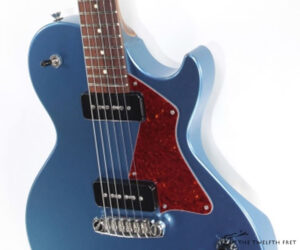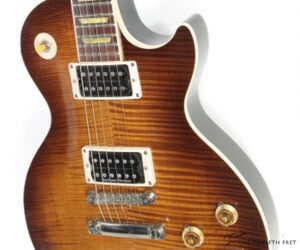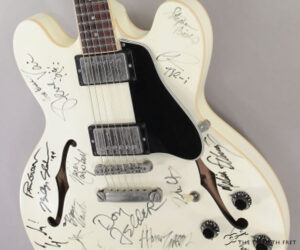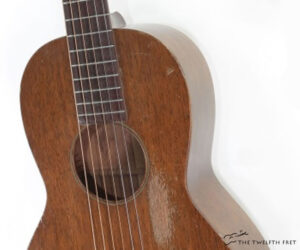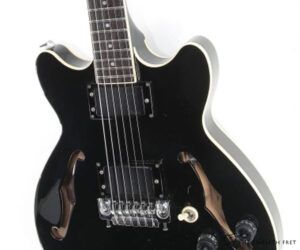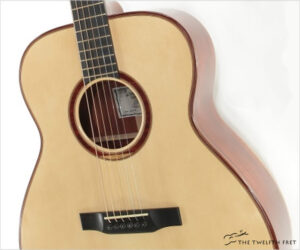While the source of the name given to this Collings 290 may seem obvious as it’s got two P90 pickups, it’s really a reference to the road outside the Collings shop. Drawing from a few traditional solidbody models, the 290 was launched in 2006 at the NAMM show, and has been in production since. Built during 2018 in Austin Texas, this Pelham Blue Collings 290 has some differences from current production.
Canada
The Gibson Les Paul Classic Premium Plus was built from 1993 to 2001 as a high end version of the Classic, which provided the slimmer 1960 neck profile. As with other higher end Les Paul models, the body features a Mahogany back with a highly figured, bookmatched Flame Maple cap, Mahogany body and Indian Rosewood fingerboard.
Conceived as ‘The Ultimate Signature Guitar,’ this autographed Gibson ES-335 Dot, conceived in 1991, boasts a striking Alpine White finish adorned with signatures from renowned guitarists. Originally donated by Gibson, this guitar became a centerpiece for a signature collection themed around the ‘Most Important Guitarists of the Last 10 Years,’ as chosen by readers of GUITAR Magazine in 1993.
Here we’re looking at a Martin 2-17 #25 built during early 1930 in Nazareth, Pennsylvania, showing a 1929 feature – a straight saddle. Not long after this guitar was built, Martin shifted to slanted saddles, giving the bass strings a little more length for intonation purposes. Apparently 449 were built during 1930 with this saddle, and 50 with the slanted saddle.
Here’s a great condition Ibanez AM-70 Artist Compact Thinline Archtop in Black finish, dating to 1985, its first year. This model was only built until 1987. With proportions somewhat like the Gibson ES-339 models, the Ibanez AM-70 is a scaled down version of the classic ES-335 style models. The top, back and sides are laminate Birch with a Maple center block. The neck is 3-piece Maple with a bound Indian Rosewood fingerboard.
This instrument has sold
MORE →This Sergei de Jonge Steel String Guitar pairs a Sitka Spruce top with Padauk for the sides, back, head plate, backstrap and rosette. Built during 2018 in Chelsea Quebec, it is in very good, clean condition, and delivers a full, rich and complex sound. Like many guitars from the de Jonge shops, this model has a French Polish finish, providing protection to the woods with a minimal imposition on the guitar’s vibration.
